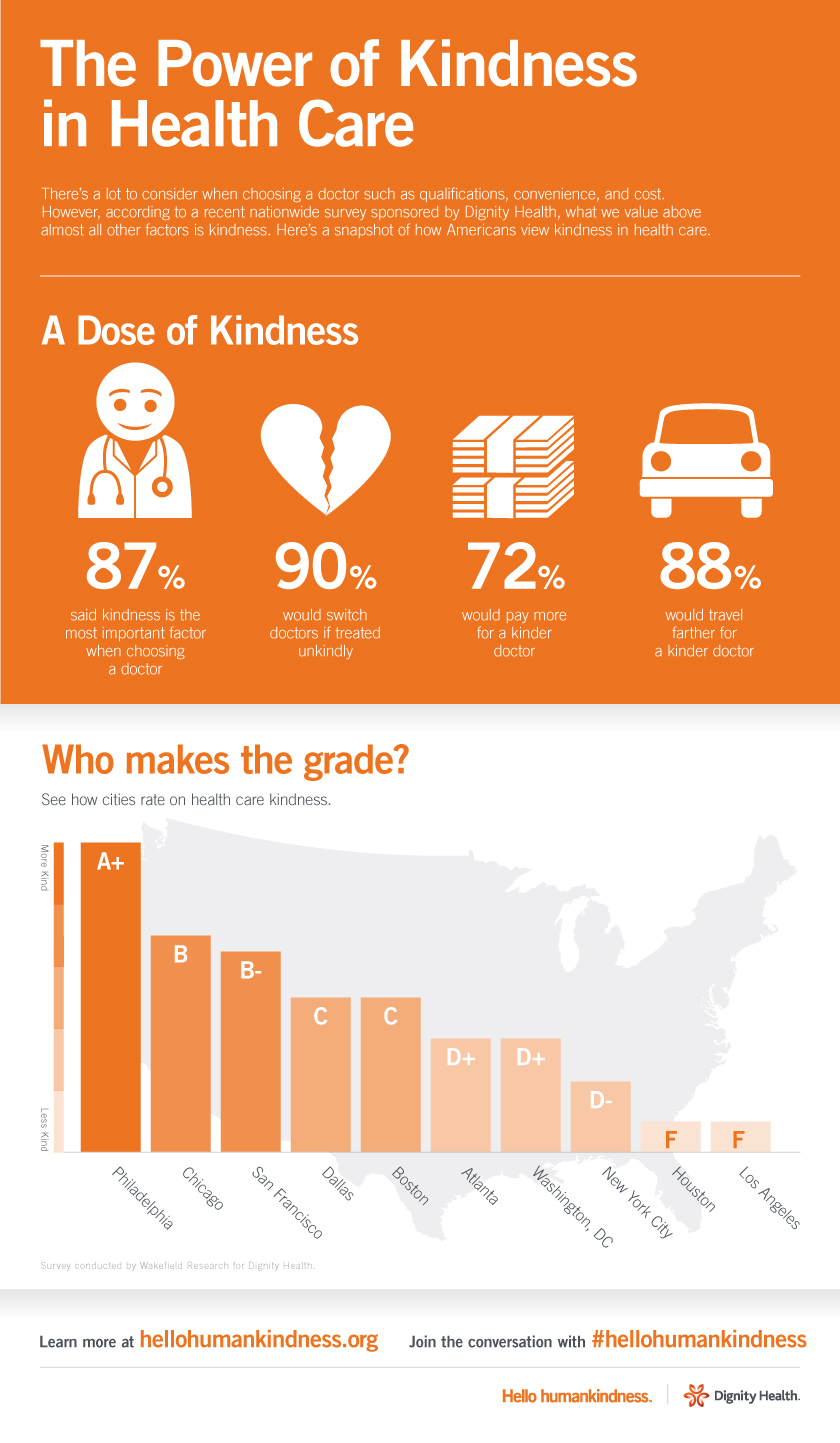
Americans Rate Kindness as Top Factor in Care
Patients willing to pay more and travel further for kinder treatment; Philadelphia receives top grade as kindest city for health care
SAN FRANCISCO – Nov. 13, 2013 – Dignity Health, one of the five largest health systems in the U.S., today announced the findings of a nation-wide survey on the power of humankindness in health care and the perception of kindness in our society.
According to the survey by Wakefield Research for Dignity Health, 87 percent of Americans feel kind treatment by a physician is more important than other key considerations in choosing a health care provider, including average wait time before appointments, distance from home, and the cost of care. Yet, 64 percent have experienced unkind behavior in a health care setting, including the failure of a caregiver to connect on a personal level (38 percent), staff rudeness (36 percent), and poor listening skills (35 percent).
"At Dignity Health, we have long believed that humankindness has the potential to heal and this survey confirms that the vast majority of patients feel the same way," said Lloyd H. Dean, president and CEO of Dignity Health. "We are committed to providing our patients with experiences where they feel welcomed, respected, and cared for by fostering stronger connections with our doctors, nurses, and caregivers."
While 95 percent of Americans feel that they themselves are kind, the survey also found that nearly half (48 percent) of Americans feel society is unkind and that a majority of Americans (58 percent) feel that U.S. culture, including media, public figures and their community, does not place a high value on kindness.
"In the midst of a divisive debate on the future of health care, we as an industry have a unique opportunity to focus on the issues that matter to our patients most - listening, healing, and reinforcing the importance of human connection," continued Dean.
The survey found that when people experience unkindness in a health care setting, a majority feel that their quality of care is negatively affected (93 percent) and withhold information from their physician (54 percent) when speaking with health care professionals. Other key findings include:
- 90 percent of Americans would feel like switching health care providers or physicians after receiving unkind treatment.
- 72 percent of Americans would be willing to pay more for a physician who emphasized kindness when treating patients.
- 88 percent would be willing to travel further to see a health care provider or physician who emphasized kindness when treating patients.
- Philadelphia, Chicago, and San Francisco ranked as the top three cities with the kindest health care providers according to the survey. New York City, Houston, and Los Angeles were ranked the bottom three.
- 95 percent of Americans feel that they themselves are kind and 94 percent make a point of doing something kind for someone at least once during the week.
- However, 50 percent of Americans think children today will grow up to be less kind than their parents.
"As someone who has been a physician for more than 20 years, I have seen numerous occasions where acts of kindness enhanced a patient's quality of life, helping him or her cope with a diagnosis more effectively," said Robert L. Wiebe, M.D., chief medical officer for Dignity Health. "This survey should encourage all of us to focus on how we treat people, not just what we treat them for."

View Infographic
Publish date:
Wednesday, November 13, 2013
 Download
Download